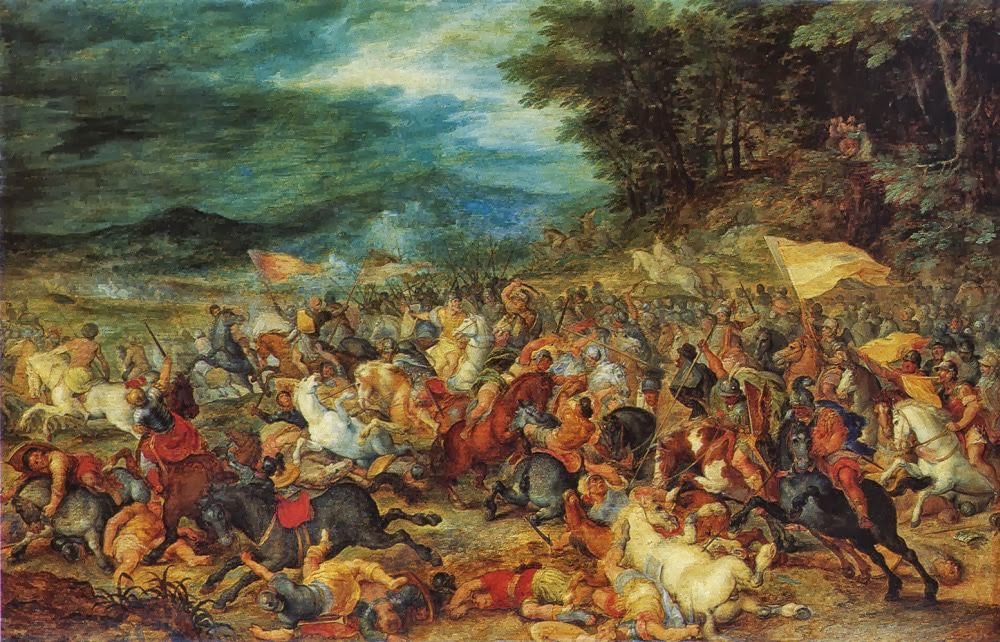🤔 Why Is God So Morbidly Violent in the Old Testament?
A Christian Leader’s Perspective on Divine Violence
📖 The Big Question
Let’s be honest—there are parts of the Bible that make us uncomfortable. One of the toughest questions believers and skeptics alike ask is this:
“Why is God so violent in the Old Testament? Is He different from the loving Jesus of the New Testament?”
Cities destroyed. Entire nations wiped out. Rivers of blood and divine commands to go to war—what are we supposed to make of all that?
This blog dives into what prominent Christian leaders and theologians say about God’s use of violence in the Old Testament and how we reconcile that with the message of love, mercy, and grace found in Christ.
🧱 1. Context Is King
Understanding the Ancient World
“The Old Testament God is not more violent than His world; He’s working within that world to ultimately redeem it.”
— Dr. John Walton, Wheaton College
The first thing to understand is the cultural context. The Old Testament didn’t take place in modern suburbia. It was written in the ancient Near East, where war, slavery, and conquest were part of everyday life.
John Walton points out that many of God’s commands—including those that seem harsh to us—were accommodations to that ancient world. God wasn’t endorsing violence as much as He was working through a violent people, gradually leading them toward righteousness.
📌 Key Scripture: Genesis 15:16 – “For the iniquity of the Amorites is not yet full…”
This shows that God even delayed judgment on wicked nations, giving them time to repent.
⚖️ 2. Justice, Not Genocide
Divine Judgment Has a Moral Basis
“What we call genocide, the Bible often describes as judgment on extreme evil.”
— Dr. Paul Copan, author of Is God a Moral Monster?
One of the hardest passages for many is God’s command to destroy the Canaanites (Deut. 7:1–5, Josh. 6). But scholars like Paul Copan explain that the Canaanites were not peaceful neighbors minding their own business. They were known for child sacrifice, temple prostitution, and widespread violence.
Copan writes that these weren’t innocent people. God gave them hundreds of years to repent. Their destruction was not arbitrary—it was divine judgment.
📌 Key Scripture: Leviticus 18:24–25 – “Even the land was defiled; so I punished it for its sin, and the land vomited out its inhabitants.”
Far from random violence, this was a moral cleansing of deep-rooted evil.
💔 3. God’s Mercy Was Always Present
Mercy Precedes Judgment
“Don’t overlook the offers of mercy God gave long before judgment fell.”
— Tim Keller
Tim Keller reminds us that God often pleaded with people before judgment came. The story of Nineveh is a perfect example. Jonah’s message to the Assyrians was simple: “Repent or perish.” And they did repent—and God relented (Jonah 3:10).
Even with the Canaanites, God told Abraham their judgment would come in 400 years (Genesis 15:13-16). He gave time. He gave space. And even within Israel, He was slow to anger and quick to forgive (Exodus 34:6).
God doesn’t enjoy destruction. He delays judgment to offer every chance for mercy.
🧩 4. Progressive Revelation
Jesus Is the Full Picture of God
“The Old Testament is the shadow. Jesus is the substance.”
— Greg Boyd, pastor and theologian
Greg Boyd argues that Scripture is a progressive revelation—we see more of God’s nature as history unfolds, culminating in Jesus. While Boyd goes further than some theologians (arguing some depictions of violence were human misunderstandings), his broader point is echoed by others:
“God meets people where they are and gradually reveals His will more fully.”
— N.T. Wright
📌 Key Scripture: Hebrews 1:1–2 – “In the past God spoke… through the prophets, but in these last days he has spoken to us by his Son.”
Jesus is not a contradiction of the Old Testament God—He is the clarification.
🪞 5. Human Sin Plays a Role
Some Violence Is Human Rebellion, Not Divine Instruction
“Many violent texts reveal not just God’s judgment—but the corruption of mankind.”
— Dr. Tremper Longman III
Not all biblical violence is divinely commanded. Some is simply recorded history. Think of the story of the Levite’s concubine in Judges 19—a horrifying account of abuse and revenge. This wasn’t God’s will. It was a picture of what happens when “everyone does what is right in their own eyes” (Judges 21:25).
In many cases, the Bible isn’t prescribing violence—it’s describing it, warts and all.
🌈 6. God’s Endgame Is Peace
The Bible’s Arc Bends Toward Redemption
“All of Scripture bends toward shalom—peace, justice, and restoration.”
— Dr. Christopher Wright
God may have used war and judgment at times, but the trajectory of Scripture leads toward peace.
📌 Key Scripture: Isaiah 2:4 – “They will beat their swords into plowshares…”
God’s ultimate goal isn’t wrath—it’s reconciliation. The new heaven and new earth in Revelation 21 is a place with no more death, sorrow, crying, or pain. Even in the Old Testament, you see glimpses of this coming peace: in the Psalms, in the prophets, and in the promise of a Messiah who would be called the Prince of Peace.
🔄 7. The Cross Changes Everything
God Takes the Violence on Himself
“The same God who once ordered judgment also bore that judgment in His own body.”
— John Stott
This is the clincher for most Christian leaders: the God of the Old Testament doesn’t stand apart from violence—He enters into it. In Jesus, God doesn’t merely punish sin—He takes the punishment on Himself.
📌 Key Scripture: Isaiah 53:5 – “He was pierced for our transgressions…”
At the cross, we see the full tension between justice and mercy, wrath and grace, judgment and forgiveness resolved.
🧭 Putting It All Together
So, why is God portrayed as violent in the Old Testament? Here’s what the majority of Christian leaders agree on:
🧩 1. Historical Context Matters
Ancient culture was already violent. God worked within that framework, not outside of it.
⚖️ 2. Justice Was the Goal
God judged evil nations after long periods of patience.
💔 3. Mercy Always Came First
God’s first move was always mercy—judgment came when that was refused.
🧩 4. Progressive Revelation Shows Growth
What’s seen in the Old Testament is clarified and fulfilled in Christ.
🪞 5. Human Sin Contributed to the Chaos
Not all violence in the Bible is commanded—some is human rebellion.
🌈 6. God’s Purpose Is Peace
The final destination of Scripture is redemption and peace, not endless wrath.
✝️ 7. The Cross Redeems the Narrative
God Himself takes the violence upon His own shoulders to save the world.
📚 Recommended Reading for Deeper Study
- Paul Copan, Is God a Moral Monster?
- Greg Boyd, The Crucifixion of the Warrior God
- John Walton, The Lost World of the Israelite Conquest
- Christopher Wright, The God I Don’t Understand
- N.T. Wright, Simply Christian
- John Stott, The Cross of Christ
🙏 Final Thoughts for the Reader
If you’ve ever read the Old Testament and wondered, “How could a loving God do this?”—you’re not alone. The Bible never asks us to enjoy divine judgment. But it does ask us to trust that God sees what we cannot.
A God who is both perfectly just and perfectly loving will sometimes act in ways that are hard for us to grasp. But the Christian answer is not to ignore these texts—it’s to see them through the lens of Jesus, who shows us the full heart of God.
And that heart—at its core—is one of love, mercy, patience, and a passion for justice.
📝 Published by Mountain Veteran Ministries
💬 Leave a comment below or share this blog if it stirred your heart.
📧 Subscribe to our newsletter for more gospel-rooted insights.

